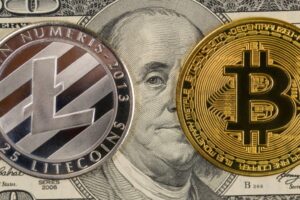The Bank of Japan widened the scope of its yield-curve control program on Tuesday as the government attempts to grapple with surging inflation.
The move saw the yen rally 2% to 133.62 against the dollar, with markets potentially pricing in speculation that the BoJ could eventually tighten policy in the face of high inflation.
The central bank said it will raise the range of 10-year Japanese Government Bond (JGB) yield fluctuations to between negative 0.5% and 0.5%, from a range of negative 0.25% to 0.25%.
Gold-bug Peter Schiff noted that the move could spark another round of monetary debasement.
The Bank of #Japan blinked and pivoted in the opposite direction. After artificially holding the 10-year JGB yield at .25%, the BOJ just raised the target rate to .5%. More hikes are coming. In the U.S. this means the #dollar and asset prices will fall and #inflation will rise.
— Peter Schiff (@PeterSchiff) December 20, 2022
The move shows that rising inflation is forcing the country to revise its stance on price pressures. A report released this week said that the government might revise the BoJ’s inflation target, as consumer inflation surged to a 40-year high in November.
In other words, the central bank is moving the goal-posts after having exhausted its monetary toolbox to no avail.
Still, a pivot away from the bank’s accommodative stance may be away. The bank maintained its 2% yearly inflation target on Tuesday, even as the CPI (consumer price index) hit an annual rate of 3.7% in October.
Former BitMEX CEO Arthur Hayes compared the situation to that of FTX, highlighting the circular banality of the central-bank owned market.
It’s like the BOJ is taking lessons from @SBF_FTX. When you own over 50% of a market is it even a market anymore? $FTT = $JGB pic.twitter.com/OePV7VLmf1
— Arthur Hayes (@CryptoHayes) December 20, 2022
Japan is the largest foreign holder of US Treasuries (USTs). Its announcement that they will allow a higher yield on the 10 year bond is a defacto interest rate hike, which may contribute to a further collapse in the DXY, which currently stands at 103.8 points following the move.
The BoJ held its short-term policy interest rate at minus 0.1%, having kept it at ultra-low levels for about a decade, and kept its long-term interest rate at 0%.
The flailing central bank promised to maintain its QE measures regardless, which include debt and exchange-traded fund purchases to increase liquidity, as the Japanese economy remained under pressure.
Japanese economic growth contracted in the third quarter, with high inflation weighing on consumption, while waning demand dented exports.
The Central Bank may be stuck in a doom loop – just like its peers – with the country facing growing pressure from a sharp drop in the yen this year driven by a widening gap between local and US interest rates. Commodity market volatility has also been on the rise as the Russia-Ukraine war persists, ramping up energy costs.
Gold exchanges hands at $1,807, up 1% on the day, while Bitcoin trades at $16,800, up 2% on the day at the time of writing.


